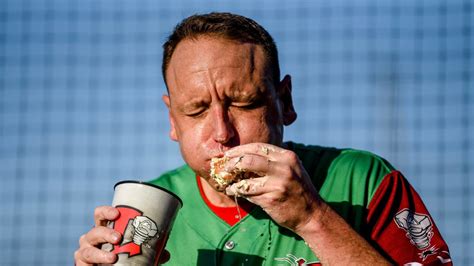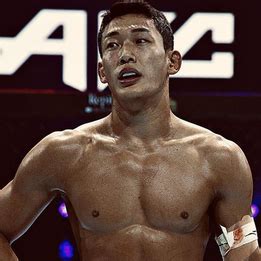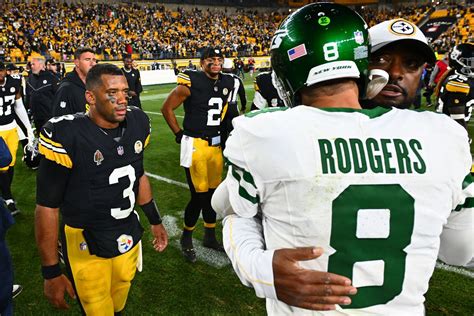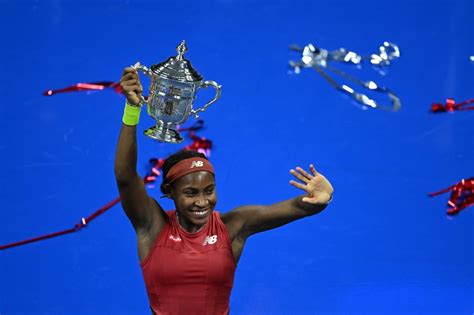
Joey Chestnut, the 16-time Nathan’s Famous Hot Dog Eating Contest champion, has vowed to continue his competitive eating career despite being banned from this year’s competition due to his endorsement deal with Impossible Foods, a rival brand to Nathan’s. Chestnut expressed his disappointment and determination to compete, stating the situation “is just about the business.”
Joey Chestnut, the undisputed king of competitive eating and 16-time winner of Nathan’s Famous Hot Dog Eating Contest, is facing an unexpected challenge: a ban from the 2024 competition due to his endorsement deal with Impossible Foods, a plant-based food company that directly competes with Nathan’s. The news, which sent shockwaves through the competitive eating world, has ignited a debate about sponsorships, brand loyalty, and the future of the iconic July 4th event. Chestnut, known for his unparalleled dominance in the sport, has publicly expressed his disappointment and vowed to find a way to continue competing, hinting at potential future contests and collaborations.
The conflict arose when Nathan’s Famous, the organizer of the annual hot dog eating contest held on Coney Island, learned of Chestnut’s agreement to endorse Impossible Foods. According to reports, Nathan’s was unwilling to compromise, demanding that Chestnut sever ties with the rival brand to maintain his eligibility to compete. Chestnut, however, stood firm, stating the opportunity with Impossible Foods was too significant to pass up.
“To set the record straight, I love competing in the Nathan’s July 4th Hot Dog Contest and I have been training to defend my title,” Chestnut said in a statement released shortly after the ban was announced. “Unfortunately, this year things will be different. It seems that Nathan’s and Major League Eating are looking to change the rules on me. I was offered a deal from Impossible Foods, who I am very happy to work with, and it became clear that Nathan’s would not accommodate me. I love all my fans and I hope to be back at the table soon. Hot dog eating is the greatest sport in the world!”
Major League Eating (MLE), the organization that sanctions and regulates competitive eating events, also weighed in on the situation. While MLE did not explicitly confirm or deny Nathan’s decision, they alluded to the complexities of sponsorships and brand exclusivity in the competitive eating world.
“We are deeply disappointed that Joey Chestnut has chosen to represent a rival brand rather than compete in the Nathan’s Famous Fourth of July Hot Dog Eating Contest,” MLE stated in a press release. “MLE has worked diligently to create a competitive platform that allows the world’s greatest eaters to showcase their talents. We are saddened that Joey has prioritized a business relationship over the tradition and values that have made this contest so iconic.”
The ban has sparked a wave of reactions from fans, fellow competitive eaters, and industry experts. Many have expressed their support for Chestnut, arguing that he has earned the right to pursue lucrative endorsement deals after years of dominating the sport. Others have sided with Nathan’s, emphasizing the importance of brand loyalty and the potential conflict of interest created by Chestnut’s partnership with a direct competitor.
The situation also raises questions about the future of competitive eating and the evolving relationship between athletes, brands, and event organizers. As the sport continues to grow in popularity and attract more mainstream attention, the stakes are getting higher, and the lines between competition, commerce, and entertainment are becoming increasingly blurred.
Chestnut’s absence from this year’s Nathan’s Famous Hot Dog Eating Contest will undoubtedly be felt by fans and competitors alike. He has been the face of the event for over a decade, captivating audiences with his incredible eating prowess and charismatic personality. His absence will create an opportunity for other competitive eaters to step into the spotlight and potentially challenge his reign.
However, Chestnut’s determination to continue competing suggests that this may not be the end of his competitive eating career. He has hinted at exploring other opportunities and partnerships, raising the possibility of a rival hot dog eating contest or other competitive eating events that could challenge Nathan’s dominance. The situation is ongoing, and further developments are expected in the coming weeks and months. The only thing for sure is that Joey Chestnut is not backing down from his passion for competitive eating, and he is determined to find a way to continue entertaining his fans and pushing the boundaries of human consumption.
The saga underscores the escalating commercial interests within competitive eating, previously viewed as a quirky and niche activity. Chestnut’s decision highlights the financial incentives now available to top-tier competitive eaters, attracting sponsorships and endorsements that were once unimaginable. This evolution is reshaping the landscape, forcing both athletes and event organizers to navigate complex issues of brand loyalty and exclusivity.
The Rise of Competitive Eating and Joey Chestnut’s Dominance:
Competitive eating, as a recognized sport, gained significant traction in the late 20th century, primarily through the efforts of Major League Eating (MLE). Founded in 1997 by George Shea and Richard Shea, MLE established a framework for organized eating contests, complete with rules, rankings, and a circuit of events held across the United States. The Nathan’s Famous Hot Dog Eating Contest, held annually on July 4th at Coney Island, quickly became the most iconic and widely recognized event in the sport.
Joey Chestnut emerged as a dominant force in competitive eating in the mid-2000s. Before Chestnut, Takeru Kobayashi, a Japanese competitive eater, revolutionized the sport with his innovative “Solomon Method,” which involved breaking hot dogs in half and dunking them in water to make them easier to swallow. Kobayashi won the Nathan’s contest six consecutive times from 2001 to 2006.
Chestnut dethroned Kobayashi in 2007, ushering in a new era of dominance. Chestnut’s technique, a combination of speed, efficiency, and sheer stomach capacity, allowed him to consistently break records and outperform his competitors. He has won the Nathan’s Famous Hot Dog Eating Contest 16 times, including a streak of eight consecutive victories from 2007 to 2014. His current world record for most hot dogs and buns consumed in 10 minutes is 76, set in 2021.
Chestnut’s success has not only cemented his status as a legend in competitive eating but has also helped to elevate the sport’s profile. His appearances on television shows, his sponsorships with various brands, and his engaging personality have made him a recognizable figure beyond the realm of competitive eating.
The Impossible Foods Deal: A Turning Point:
The endorsement deal between Joey Chestnut and Impossible Foods represents a significant development in the world of competitive eating. Impossible Foods, a company that produces plant-based meat substitutes, is a direct competitor to Nathan’s Famous, which primarily sells meat-based hot dogs.
Chestnut’s decision to partner with Impossible Foods reflects the growing appeal of plant-based alternatives and the increasing willingness of athletes and celebrities to endorse brands that align with their values or offer lucrative financial opportunities. The deal likely involves Chestnut promoting Impossible Foods’ products through social media, appearances at events, and other marketing activities.
However, the partnership also created a conflict of interest with Nathan’s Famous, which has a long-standing tradition of featuring meat-based hot dogs at its annual contest. Nathan’s Famous likely viewed Chestnut’s endorsement of a rival brand as a betrayal of their partnership and a potential threat to their brand image.
The Fallout and Reactions:
The ban on Joey Chestnut from the 2024 Nathan’s Famous Hot Dog Eating Contest has generated a wide range of reactions. Many fans have expressed their disappointment and outrage, arguing that Chestnut has earned the right to compete regardless of his endorsement deals. They point to his years of dedication to the sport and his contributions to the contest’s popularity.
“It’s ridiculous that Nathan’s is banning Joey over this,” said one fan on social media. “He’s the best in the world, and he should be able to compete regardless of who he sponsors.”
Other fans have sided with Nathan’s, arguing that the company has the right to protect its brand and prevent conflicts of interest. They argue that Chestnut’s endorsement of a rival brand undermines Nathan’s Famous and its products.
“Nathan’s has every right to ban Joey,” said another fan. “He’s promoting a competitor, and that’s not fair to Nathan’s, who have supported him for years.”
Fellow competitive eaters have also weighed in on the situation. Some have expressed sympathy for Chestnut, while others have seen it as an opportunity to compete for the title in his absence.
“It’s a tough situation for Joey,” said one competitive eater. “He’s got to do what’s best for his career, but it’s sad to see him miss out on the contest.”
Industry experts have also offered their perspectives on the situation. Some have argued that Nathan’s Famous made a mistake by banning Chestnut, while others have said that the company was justified in its decision.
“Nathan’s is taking a big risk by banning Joey,” said one marketing expert. “He’s the face of the contest, and his absence will hurt viewership and attendance.”
“Nathan’s had no choice but to ban Joey,” said another expert. “They can’t allow him to promote a competitor and still compete in their contest.”
The Future of Competitive Eating:
The controversy surrounding Joey Chestnut’s ban from the Nathan’s Famous Hot Dog Eating Contest raises important questions about the future of competitive eating. As the sport continues to grow and attract more mainstream attention, the stakes are getting higher, and the lines between competition, commerce, and entertainment are becoming increasingly blurred.
One of the key challenges facing competitive eating is the increasing influence of sponsorships and endorsements. As athletes like Joey Chestnut become more recognizable and marketable, they are attracting more lucrative endorsement deals. However, these deals can also create conflicts of interest with event organizers and sponsors.
Another challenge is the need to balance tradition and innovation. The Nathan’s Famous Hot Dog Eating Contest has a long and storied history, and many fans value its traditions and customs. However, the sport also needs to evolve and adapt to changing times to remain relevant and engaging.
The future of competitive eating will likely depend on how these challenges are addressed. Event organizers, athletes, and sponsors will need to work together to find ways to balance competition, commerce, and entertainment while preserving the integrity and traditions of the sport.
Potential Outcomes and Scenarios:
Several potential outcomes and scenarios could emerge from the current situation involving Joey Chestnut and Nathan’s Famous:
-
Chestnut Competes in a Rival Event: Chestnut could partner with Impossible Foods or another company to create a rival hot dog eating contest or other competitive eating event. This would allow him to continue competing and promoting his sponsors, but it could also split the competitive eating community and dilute the Nathan’s Famous contest’s appeal.
-
Chestnut and Nathan’s Reach a Compromise: Chestnut and Nathan’s Famous could negotiate a compromise that allows him to compete in the contest while still maintaining his endorsement deal with Impossible Foods. This could involve limiting his promotion of Impossible Foods during the contest or agreeing to certain restrictions on his marketing activities.
-
Chestnut Sits Out the 2024 Contest and Returns in 2025: Chestnut could choose to sit out the 2024 Nathan’s Famous Hot Dog Eating Contest and focus on his endorsement deal with Impossible Foods. He could then attempt to negotiate a return to the contest in 2025, potentially under different terms.
-
Another Competitive Eater Emerges as the New Champion: With Chestnut absent from the 2024 contest, another competitive eater could seize the opportunity to win the title and become the new face of the event. This could create new rivalries and storylines within the sport and potentially challenge Chestnut’s dominance in the long term.
-
The Nathan’s Famous Contest Loses Popularity: Chestnut’s absence could hurt viewership and attendance at the 2024 Nathan’s Famous Hot Dog Eating Contest. This could lead to a decline in the contest’s popularity and potentially weaken Nathan’s Famous’ brand image.
Conclusion:
The ban on Joey Chestnut from the 2024 Nathan’s Famous Hot Dog Eating Contest marks a significant turning point in the world of competitive eating. The controversy highlights the growing influence of sponsorships and endorsements, the challenges of balancing tradition and innovation, and the evolving relationship between athletes, brands, and event organizers.
The future of competitive eating will depend on how these challenges are addressed. Event organizers, athletes, and sponsors will need to work together to find ways to balance competition, commerce, and entertainment while preserving the integrity and traditions of the sport. Whether Joey Chestnut returns to the Nathan’s Famous Hot Dog Eating Contest remains to be seen, but his impact on the sport is undeniable, and his absence will undoubtedly be felt by fans and competitors alike. His legacy, however, is now intertwined with the commercial realities of competitive eating, a testament to how far the sport has come from its humble beginnings. The situation underscores the power of individual brand and how it interacts with established corporate interests, leading to unforeseen disruptions in the competitive landscape.
Frequently Asked Questions (FAQ):
-
Why was Joey Chestnut banned from the Nathan’s Famous Hot Dog Eating Contest?
Joey Chestnut was banned because of his endorsement deal with Impossible Foods, a plant-based food company that competes with Nathan’s Famous. Nathan’s Famous was unwilling to allow Chestnut to compete while representing a rival brand.
-
What was Joey Chestnut’s reaction to the ban?
Chestnut expressed disappointment and stated that he loves competing in the Nathan’s contest and had been training for it. He also indicated that the situation was “just about the business” and hinted at continuing his competitive eating career elsewhere.
-
What is Impossible Foods, and why is its association with Chestnut problematic for Nathan’s?
Impossible Foods is a company that produces plant-based meat substitutes, including hot dogs. Its association with Chestnut is problematic for Nathan’s Famous because Nathan’s primarily sells meat-based hot dogs, making Impossible Foods a direct competitor.
-
How many times has Joey Chestnut won the Nathan’s Famous Hot Dog Eating Contest?
Joey Chestnut has won the Nathan’s Famous Hot Dog Eating Contest 16 times.
-
What is Major League Eating’s (MLE) role in this situation?
Major League Eating (MLE) sanctions and regulates competitive eating events, including the Nathan’s Famous Hot Dog Eating Contest. While MLE did not explicitly confirm Nathan’s decision, they expressed disappointment that Chestnut chose to represent a rival brand, emphasizing the importance of brand loyalty to them.
-
What record does Joey Chestnut hold in the hot dog eating world?
Joey Chestnut currently holds the world record for consuming 76 hot dogs and buns in 10 minutes, which he set in 2021.
-
Who was Takeru Kobayashi and what is his importance to the Nathan’s Hot Dog Eating Contest?
Takeru Kobayashi is a Japanese competitive eater who revolutionized the sport with his eating method. He won the Nathan’s contest six consecutive times from 2001 to 2006 and his innovative “Solomon Method” changed how competitors approached the contest.
-
What does this situation say about the commercialization of competitive eating?
This situation underscores the increasing commercialization of competitive eating, with lucrative sponsorships and endorsements becoming more common. It highlights the conflict that can arise between athletes’ financial interests and event organizers’ brand loyalty.
-
What are some potential future scenarios for Joey Chestnut?
Potential scenarios include Chestnut competing in a rival hot dog eating contest, reaching a compromise with Nathan’s Famous, sitting out the 2024 contest and returning in 2025, or another competitive eater emerging as the new champion.
-
How could Joey Chestnut’s absence impact the 2024 Nathan’s Famous Hot Dog Eating Contest?
Chestnut’s absence could hurt viewership and attendance at the contest, potentially leading to a decline in its popularity. It also creates an opportunity for other competitive eaters to step into the spotlight and compete for the title.
-
What are the key challenges facing competitive eating as it grows in popularity?
Key challenges include managing the influence of sponsorships and endorsements, balancing tradition and innovation, and navigating the evolving relationship between athletes, brands, and event organizers.
-
What did Joey Chestnut mean by the statement that the ban “is just about the business?”
Chestnut’s statement suggests that the ban is primarily driven by financial and commercial considerations related to his endorsement deal with Impossible Foods, rather than personal animosity or other factors.
-
How are fans reacting to Joey Chestnut’s ban?
Fan reactions are mixed, with some expressing disappointment and outrage, arguing that Chestnut has earned the right to compete regardless of his endorsement deals, while others support Nathan’s Famous’ decision to protect its brand.
-
Could Joey Chestnut create his own hot dog eating contest?
Yes, Joey Chestnut could potentially create his own hot dog eating contest, possibly in partnership with Impossible Foods or another sponsor. This would provide him with a platform to continue competing and promoting his sponsors.
-
What does this controversy say about the power of individual brands in sports and entertainment?
This controversy demonstrates the increasing power of individual brands in sports and entertainment. Athletes like Joey Chestnut can leverage their personal brand to attract lucrative endorsement deals, potentially challenging the established power structures of event organizers and sponsors.
-
What are some of the potential downsides of competitive eating for participants and the sport itself?
Potential downsides include health risks associated with extreme eating, the potential for commercial interests to overshadow the spirit of competition, and the ethical considerations of promoting excessive consumption.
-
What kind of impact has Joey Chestnut had on the popularity of competitive eating?
Joey Chestnut has had a significant impact on the popularity of competitive eating, helping to elevate the sport’s profile through his appearances on television, sponsorships, and engaging personality. He has made the sport more accessible and appealing to a wider audience.
-
What role do social media and media coverage play in shaping public perception of events like the Nathan’s Famous Hot Dog Eating Contest?
Social media and media coverage play a crucial role in shaping public perception of events like the Nathan’s Famous Hot Dog Eating Contest, influencing viewership, attendance, and the overall image of the sport. They can amplify both positive and negative aspects of the event and its participants.
-
How might Nathan’s Famous try to minimize the negative publicity from Chestnut’s ban?
Nathan’s Famous might try to minimize negative publicity by emphasizing the importance of brand loyalty and protecting its traditions, promoting other competitive eaters, and highlighting the charitable aspects of the contest.
-
What legal considerations might be relevant to the dispute between Chestnut and Nathan’s?
Legal considerations might include contract law related to Chestnut’s previous agreements with Nathan’s Famous and MLE, intellectual property law related to the use of Chestnut’s image and likeness, and antitrust law related to potential restrictions on Chestnut’s ability to compete.
-
What is the Solomon Method, and how did it change competitive eating?
The Solomon Method, innovated by Takeru Kobayashi, involves breaking hot dogs in half and dunking them in water to make them easier to swallow. This technique revolutionized competitive eating by allowing competitors to consume more hot dogs in a shorter amount of time.
-
How could Major League Eating change its rules or regulations to avoid similar conflicts in the future?
MLE could revise its rules to clarify sponsorship guidelines, establish clear conflict-of-interest policies, and create a framework for resolving disputes between athletes, sponsors, and event organizers. They could also consider implementing a revenue-sharing model to compensate athletes for the use of their image and likeness.
-
What alternative food eating contests could Joey Chestnut participate in that wouldn’t conflict with his Impossible Foods sponsorship?
Joey Chestnut could participate in competitive eating contests involving other foods that don’t directly compete with Nathan’s hot dogs, such as pizza, tacos, or even plant-based foods exclusively.
-
How might this situation impact future endorsement deals for competitive eaters?
This situation may lead to more detailed and restrictive endorsement contracts for competitive eaters, clarifying the limitations on representing competing brands and establishing stricter conflict-of-interest clauses. It could also increase scrutiny of athletes’ existing endorsement deals before they are invited to participate in events.
-
What is the legacy of Joey Chestnut, and how will this controversy affect it?
Joey Chestnut’s legacy is that of a dominant and record-breaking competitive eater who elevated the sport’s profile. This controversy could tarnish his legacy to some extent, but it also highlights the challenges of balancing athletic pursuits with commercial interests in the modern sports landscape. Ultimately, his fans will remember him as the undisputed champion, regardless of this temporary setback.
-
How does this situation reflect broader trends in the food industry and the increasing popularity of plant-based alternatives?
The situation reflects the increasing popularity of plant-based alternatives in the food industry, as evidenced by Impossible Foods’ willingness to sponsor a prominent competitive eater. It also underscores the growing awareness of consumers regarding sustainable and ethical food choices.
-
What role does tradition play in the Nathan’s Famous Hot Dog Eating Contest, and how does Chestnut’s ban challenge that tradition?
Tradition is a central aspect of the Nathan’s Famous Hot Dog Eating Contest, with its long history, iconic Coney Island location, and annual celebration of American gluttony. Chestnut’s ban challenges this tradition by disrupting the established order and raising questions about the event’s future direction.
-
In what ways does Joey Chestnut benefit from the attention, regardless of whether he participates in the Nathan’s contest?
Even without participating, Chestnut benefits from the attention as it maintains his relevance in the competitive eating world, bolsters his personal brand, and generates media coverage that could lead to new sponsorship opportunities or ventures.
-
What alternative viewpoints or perspectives might not be getting as much attention in the mainstream media coverage of this event?
Alternative viewpoints that may not be getting as much attention include the health implications of competitive eating, the ethical considerations of promoting overconsumption, and the potential environmental impacts of the food industry involved. Also, the perspectives of smaller, lesser-known competitive eaters who could benefit from Chestnut’s absence might be overlooked.
-
How can the Nathan’s Famous Hot Dog Eating Contest maintain its relevance and appeal to future generations of viewers and participants?
To maintain relevance, the contest could adapt to evolving consumer preferences by incorporating plant-based alternatives, promoting sustainability initiatives, and engaging with younger audiences through social media and interactive experiences. Balancing tradition with innovation will be crucial for ensuring the event’s long-term success.









